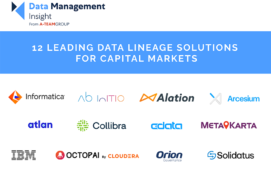According to the word on the reference data street, the European Commission is in the process of investigating Thomson Reuters’ licensing policy for its Reuters Instrument Codes (RICs). The regulator last month sent out a questionnaire to continental European banks in order to garner more information about licensing fees and usage of these financial instrument identification codes, although the Commission has not yet confirmed the nature of the investigation.
Much like the Commission’s investigation of the Cusip Service Bureau’s International Securities Identification Numbers (ISINs) for North American securities earlier this year, there is a distinct lack of clarity about exactly what it is trying to achieve. Moreover, the Commission has also not approached the vendor directly; it has instead sent these questionnaires to its customers (much like the process adopted during the Cusip Service Bureau investigation).
The regulator seems keen to break down what it views as these data providers’ market monopolies by ensuring that their codes for data are interoperable and non-proprietary. The RIC codes are used across the industry to identify equities, stock indices and commodity futures, including those outside of Thomson Reuters’ portfolio of products. The ticker like codes are therefore viewed as endemic to the industry: although Thomson Reuters does not sell RICs, the codes used are proprietary to the vendor and are embedded in the data that it sells to financial institutions.
Thomson Reuters may support other codes, but the Commission seems particularly concerned about its intellectual property rights with regards to RICs and whether the proprietary nature of these codes means clients are prevented from easily moving from one vendor to another. The fact that they become embedded into a customer’s infrastructure would seem to support this notion, according to some respondents to the questionnaire.
Given that the Commission has yet to publish a ruling concerning the Cusip Service Bureau investigation, the industry is likely to be in for another long wait before it can determine exactly what the regulator is up to. In the meantime, data vendors should be on the lookout for any signs of definitive action being taken.
Subscribe to our newsletter




